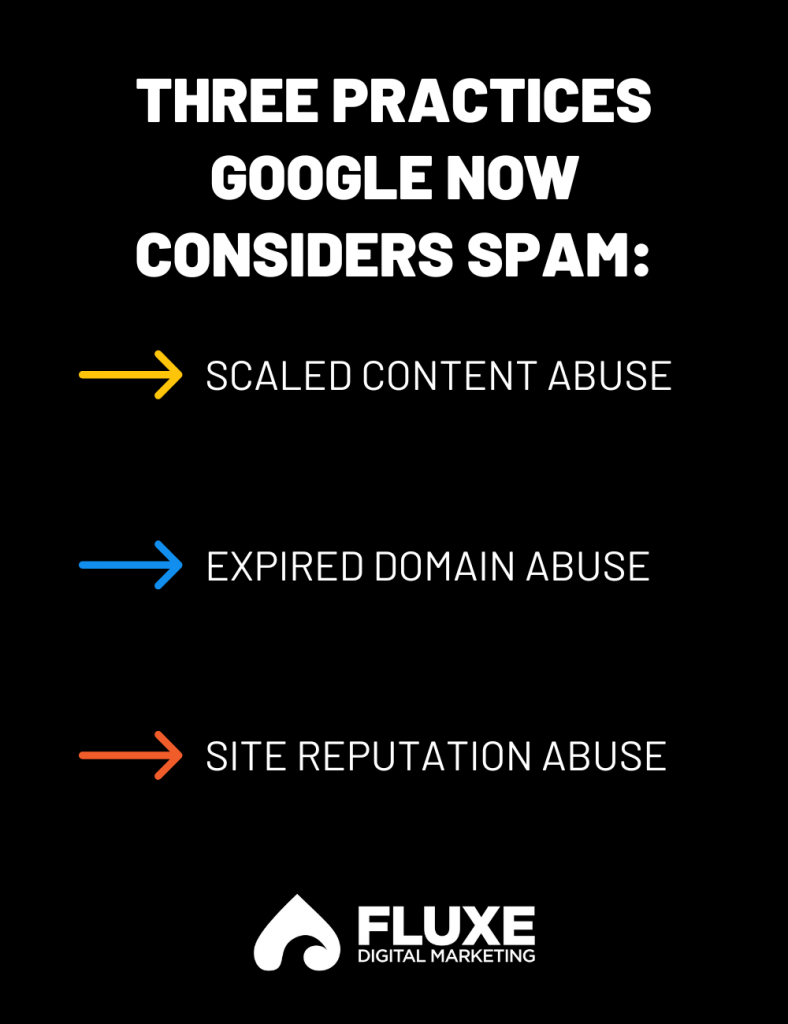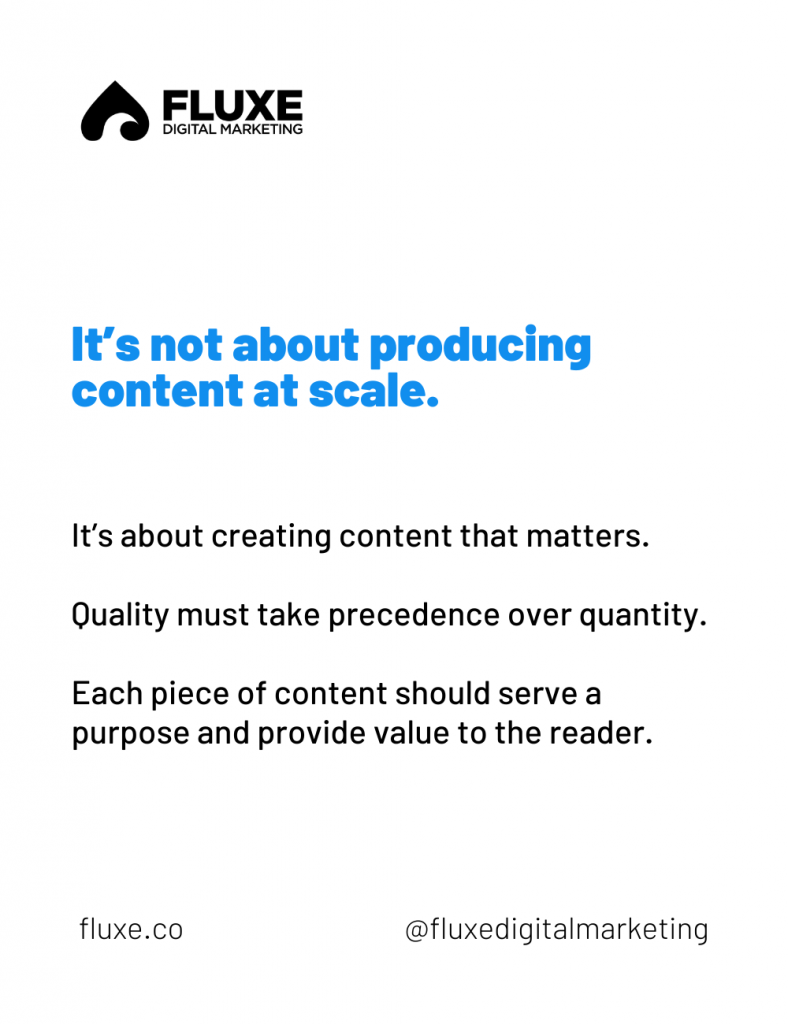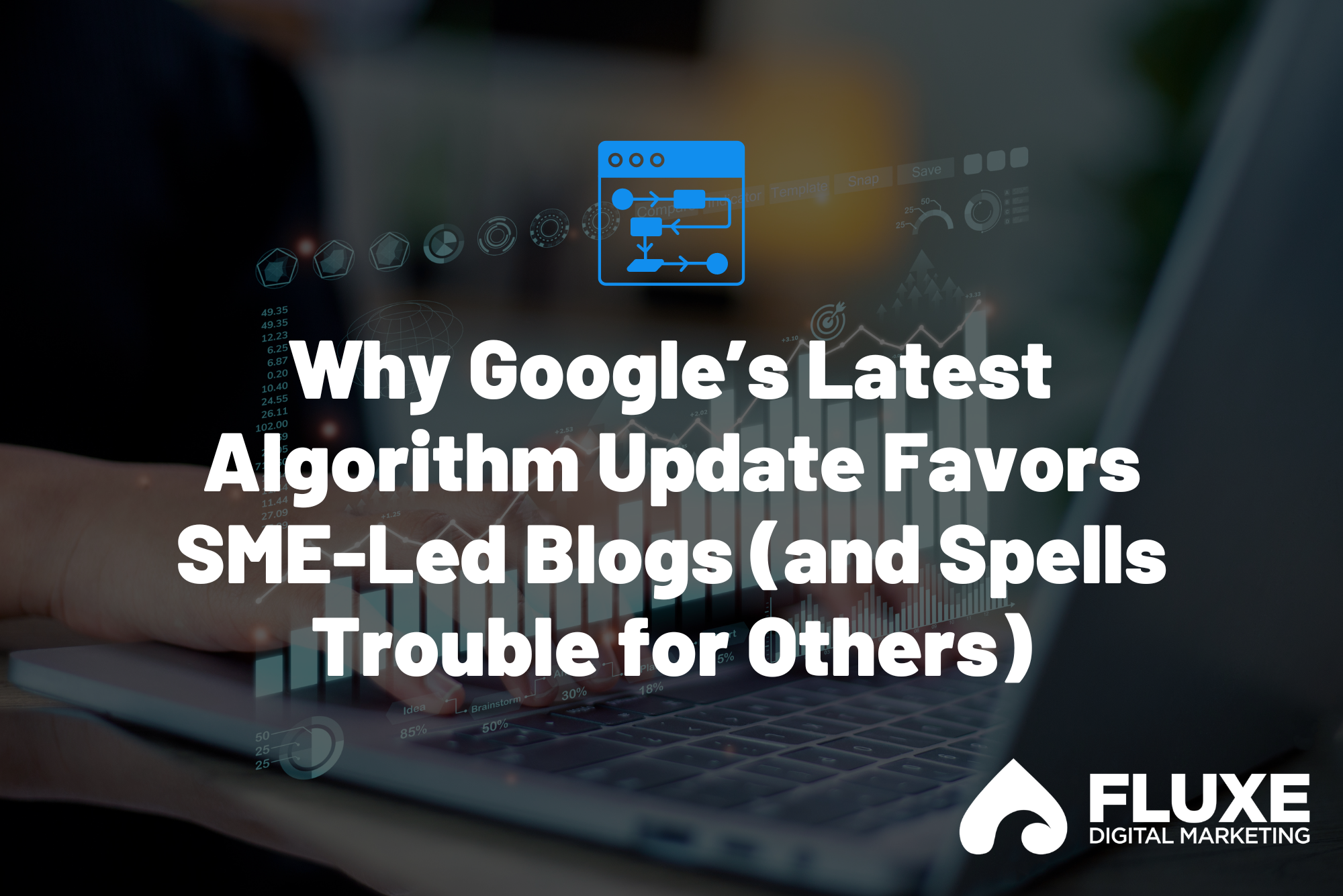Does Google penalize AI content?
After March 2024, the answer to that question is a firm yes.
Google’s March 2024 update penalizes AI-generated work to reduce unhelpful, low-quality content in its results. This way, Google rewards human-created content based on original research, fresh perspectives, and subject matter expertise.
Now that the update is in full force, the consequences of relying on AI-generated content are starkly apparent. Sites that use AI aggressively are being removed from search results overnight. It’s a sobering reminder that while AI can be a handy tool, it’s no substitute for genuine expertise.
So, what does this mean for content creators?

The War on AI-Generated Content
The March update targets three practices Google now considers spam:
- Scaled content abuse: Using AI to generate large volumes of low-quality content, often by rephrasing or combining content from other sources.
- Expired domain abuse: Purchasing expired domains with a history of strong search performance and populating them with AI-generated content.
- Site reputation abuse (parasite SEO): Creating multiple pages of AI-generated content nearly or completely unrelated to the host site.
Google’s message is clear: It’s time to prioritize people-first content. Creators must use their content to provide real value to their audience — not just flood the internet with AI-generated pages to rake in the clicks.
Does Google Penalize AI Content?
Nearly everyone in the content world has lately asked the question, “Does Google penalize AI content?”
The answer couldn’t be clearer. While AI is a useful tool, overreliance on AI-generated content is risky business.
This doesn’t mean all AI-assisted content is bad. When used strategically, AI often amplifies your knowledge and creates better content more efficiently. The key is to use AI to enhance your expertise, not to replace it.
Why Does Google Penalize AI Content?
Google’s latest update emphasizes the value of expert insights, proprietary data, and real-world stories. They don’t want creators to churn out blog posts and videos for the sake of it; they want to offer searchers genuinely valuable content.
AI is a knowledge amplifier, not a shortcut to compensate for a lack of expertise. Think of a nail gun versus a hammer. A nail gun is faster than a hammer, but it can’t do the job on its own. The craftsman knows what nails to use, where to place them, and at what angle.
Like a nail gun, AI can streamline the content creation process, but it can’t replace the subject matter expert’s unique insights and experiences.
For content creators, Google’s latest update is a challenge to step up their game and provide real value.
SME-Led Content: The Clear Winner
Content created by subject matter experts (SMEs) now has the upper hand.
SMEs develop content to deliver genuine insights based on their real-world experiences. They share the industry knowledge and practical expertise that Google now prioritizes.
SMEs are in a prime position to create the content Google wants to share with searchers. They can draw on their unique experiences, share insider knowledge, and provide fresh perspectives on industry trends. This kind of content builds trust with readers and establishes authority.
Across many industries, successful SME-led blogs showcase the power of authentic, expert-driven content. They build trust and engage audiences in ways AI-generated content can’t.
For example, a marketing agency owner might share insights from successful client campaigns, complete with real data and lessons learned. A chef could provide unique recipes and cooking tips based on years of experience in professional kitchens.
Readers crave these kinds of unique, expert-driven insights, which is why Google is prioritizing them.
Rethinking Content Strategy
This update is a wake-up call for businesses that have relied heavily on AI-generated content. It’s time to rethink that content strategy, invest time in research, and create original, high-quality content.
Instead of trying to game the system with AI, businesses must create content that provides real value to their audiences. This means interviewing subject matter experts, conducting original research, and sharing unique insights and experiences.
It’s not about producing content at scale. It’s about creating content that matters. Quality must take precedence over quantity. Each piece of content should serve a purpose and provide value to the reader.

The Future of SEO: Thought Leadership and Authenticity
Gone are the days of content mills and keyword stuffing. Google’s algorithm update is a step toward a more authentic internet where genuine expertise reigns supreme and thought leadership triumphs over cheap SEO tactics.
This is an opportunity for businesses to position themselves as thought leaders in their industry. By consistently providing valuable, expert-driven content, they can build trust with their audiences and establish themselves as go-to resources.
So, does Google penalize AI content? If that content is low-quality and spammy, the answer is a resounding yes.
But if you produce high-quality, expert-driven content that uses AI as a strategic tool in the hands of an expert, Google will reward you by connecting you with your target audience.
We at Fluxe Digital Marketing saw this update coming a mile away. We have years of experience creating valuable content that connects thought leaders with their target audiences, and Google has always rewarded our clients for it.
Let our team of experts handle your content marketing the right way. Reach out today.



